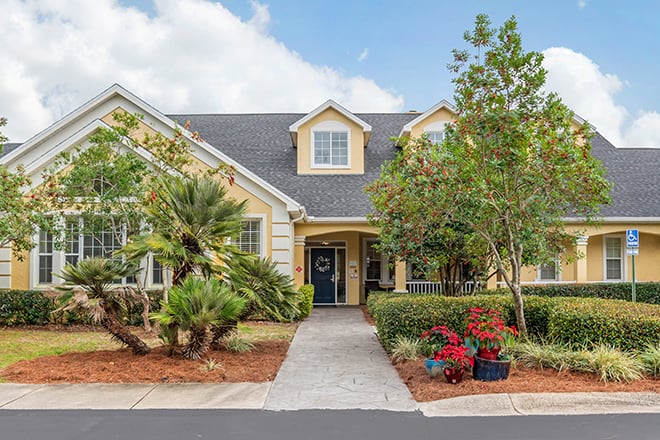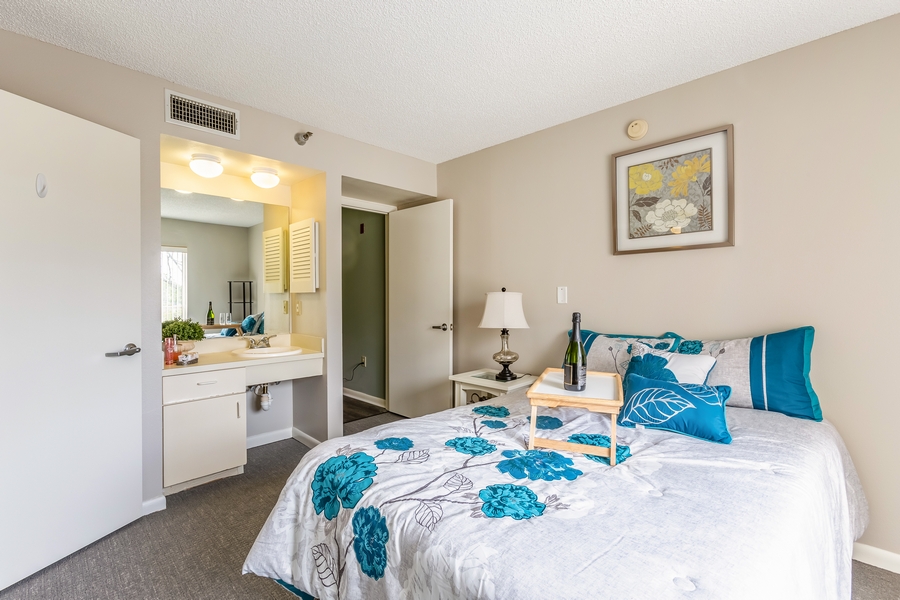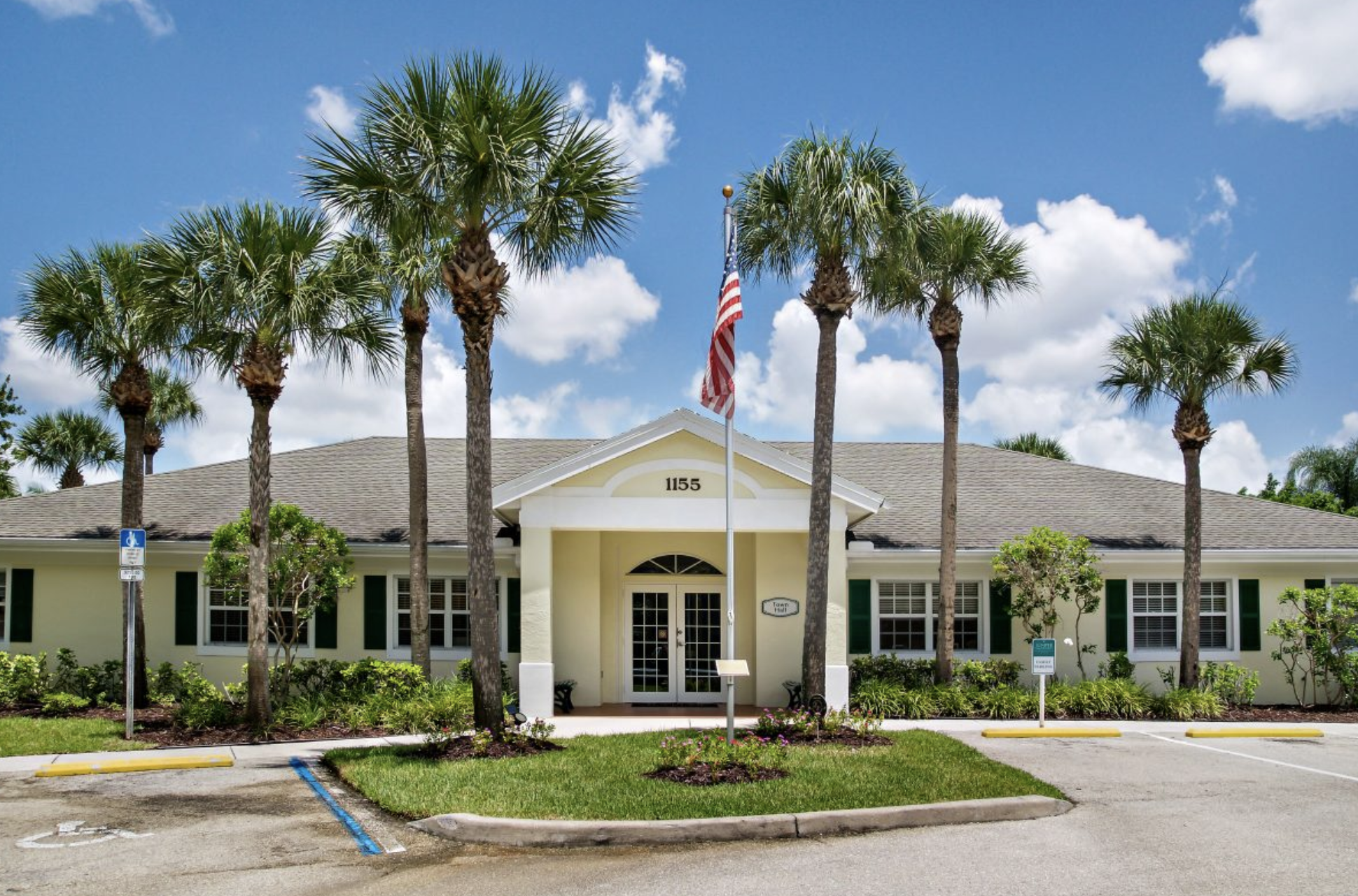
Assisted Living in Florida
Costs and Local Resources
Take a look at all the Sunshine State has to offer as you search for assisted living in Florida. Known for theme parks, beach resorts, and tropical climate, Florida is a desirable destination for seniors looking for a new home. As a major hub for tourism, hospitality, agriculture, and transportation, Florida is the fourth largest economy in the US. This financial success combined with its beautiful weather and unique geography (it boasts the third-largest coral barrier reef system in the world, for example) have attracted tourists, immigrants, and retirees. 17% of people in Florida are overa 65, the highest in the US. If you’re looking to retire in Florida too, there’s no better place to start your search for assisted living than right here.
The cost of assisted living in Florida
Seniorly 2021 data shows that the average monthly cost of an assisted living community in Florida is $3,299. The national average is $4,057. Obviously, the average Florida pricing is substantially less than the national average: this may be due to Florida’s cost of living, taxes, and perhaps supply vs demand, since Florida is such a popular state to retire to. Explore our assisted living listings to start comparing properties, or get in touch with one of our local advisors to get expert advice. They can help you determine what level of care you or your loved one might need.
Assisted living communities can provide the peace of mind that comes from not worrying about home maintenance, chores, or errands, as well as help with personal grooming, eating, and other daily activities seniors might have trouble with. However, if your loved one requires nursing care, or has diagnosed Alzheimer's or dementia that has progressed to a certain point, they might need a skilled nursing facility/home health care, or memory care community instead. These communities (and for that matter, in-home care) might cost more in Florida than assisted living facilities, but the important thing is that your loved one’s needs are cared for in order to provide them with the best quality of life.
If your loved one currently lives in a retirement community, ask whether it is a Continuing Care Retirement Community: these senior living properties are generally designed for residents to age in place. Seniors can get the different levels of care they need, as they need them, without having to move to a different community all together.
Overall cost of living in Florida
Florida’s overall cost of living index is 97.9, on a scale where the national average is 104.63. Florida’s cost of living is just slightly below average, of course some areas in the state will be more expensive than others. Florida is one of the few states with no income tax, which can make it a desirable location for retirees who subsequently don’t have to worry about paying state taxes on their pensions, Social Security, or other forms of income.
Financial assistance for assisted living in Florida
Medicaid options for the Florida seniors
According to benefits.gov, to be eligible for Florida Medicaid, you must be a resident of the state of Florida, a U.S. national, citizen, permanent resident, or legal alien, in need of health care/insurance assistance, whose financial situation would be characterized as low income or very low income. You must also be one of the following:
- Pregnant, or
- Be responsible for a child 18 years of age or younger, or
- Blind, or
- Have a disability or a family member in your household with a disability, or
- Be 65 years of age or older.
In 2014, Florida replaced its former system of waivers with the Statewide Managed Medicaid Care Long Term Care program. The old waiver system (Home and Community Based Services Medicaid Waivers) included a range of care services and non-care support, which are also covered under SMMC-LTC. These benefits include assistance with personal care (activities of daily living, or ADLs), home-delivered meals, home modifications, and respite care, to name just a few.
Non-Medicaid state assistance programs
There are a few programs in Florida besides Medicaid that can help people find senior care and support for older adults. The Florida Department of Elder Affairs offers more information on many of these programs.
Alzheimer’s Disease Initiative: ADI offers support services to seniors and families living with Alzheimer’s disease. This includes respite care and training for caregivers of adults over 18 living with Alzheimer’s and other diagnosed memory disorders.
Community Care for the Elderly (CCE): This program offers services and support to help functionally impaired elders live comfortably and safely (and cost-effectively) according to their needs. If eligible, you or your loved one can receive help with chores, meal-delivery, adult daycare, respite care, transportation, or simple companionship.
Home Care for the Elderly (HCE): Floridians age 60 and older in family-type living arrangements within private homes can receive support through this program, as an alternative to institutional or senior living care facilities. It offers a basic subsidy that can be used to support the older adult, including some medical expenses.
Optional State Supplement (OSS): The Florida Department of Children & Families provides financial assistance to low-income seniors who cannot live independently and require residential care. OSS funds may be used toward adult family care homes, assisted living communities, or mental health treatment centers.
Respite for Elders Living in Everyday Families (Project RELIEF): This program helps expand the respite services provided by other programs, with the aim of helping families continue to care for older adults at home while avoiding caregiver burnout.
More ways to finance assisted living in Florida
There are several options available to finance assisted living for yourself or a loved one. Long-term care can be financed several ways:
- Life insurance - Some life insurance policies have a provision for long-term care benefits.
- Long-term care insurance - This type of insurance is intended to cover long-term health care needs by covering costs for assisted living or long-term care communities.
- Pensions, 401K, and IRA - If you have a pension, 401k or an IRA to fall back upon this would be a great benefit in paying for assisted living costs.
- Real Estate - Having a home is a great source of income. When it is time to move into assisted living the sale proceeds from your home can cover the costs.
- Veteran’s benefits - While the VA will not directly cover the costs of assisted living, you can obtain help from the VA under the Veterans Aid & Attendance benefits. The Aid & Attendance benefits helps eligible veterans and their surviving spouses to pay for assistance for activities of daily living (ADLs) activities. Aid & Attendance benefits are often referred to by other names such as “improved pension,” “VA assisted living benefit,” or “veterans elder care benefits.”
Free assisted living resources in Florida
Florida residents can explore state resources that can help answer your questions about eligibility for certain types of benefits and how they might apply to assisted living.
Find your local Area Agency on Aging: There are multiple agencies per state, enter your zip code or city to find the one closest to you.
The Florida Department of Veterans Affairs may be able to help you determine if your loved one is eligible for VA benefits.
Find Florida Social Security offices where you can understand your benefits and get answers to your questions about claims.


